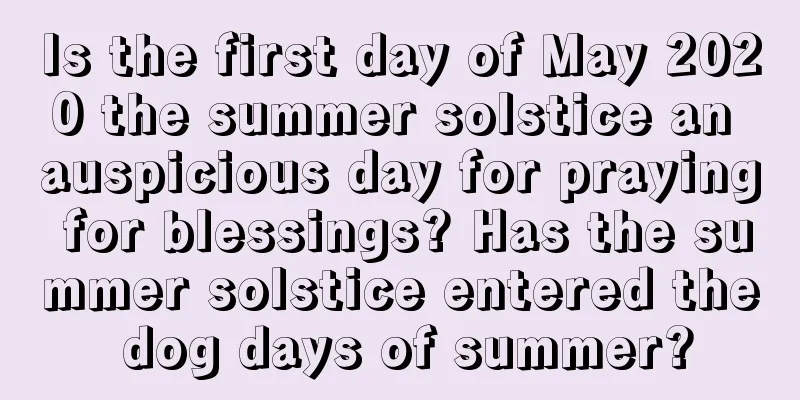What are the origins and legends of the Chushu, one of the 24 solar terms? The basis of the formation of solar terms

The 24 solar terms are the crystallization of Chinese civilization and wisdom, reflecting the characteristics of seasons, climate, and phenology. What are the origins and legends of the Chushu period, one of the 24 solar terms? About the basis of the formation of solar terms. The seventh month of the lunar calendar is a month filled with the fragrance of fruits and flowers. So how is the seventh month of the lunar calendar 2019? Mr. Shui Mo's website will take you to learn more information!What are the origins and legends of the Chushu period, one of the 24 solar terms?The ancients divided the 24 solar terms into 12 solar terms and 12 middle terms.The twelve solar terms: Beginning of Spring, Waking of Insects, Pure Brightness, Beginning of Summer, Grain in Ear, Lesser Heat, Beginning of Autumn, White Dew, Cold Dew, Beginning of Winter, Heavy Snow, Lesser Cold. The twelve solar terms: Rain Water, Spring Equinox, Grain Rain, Grain Full, Summer Solstice, Great Heat, End of Heat, Autumnal Equinox, Frost Descent, Light Snow, Winter Solstice, Great Cold. The End of Autumn reflects the change in temperature. After this solar term, it means the weather turns cooler and the condensation conditions of water vapor in the air are different. For thousands of years, “food is the most important thing for the people” (Book of Han, Biography of Li Shiqi). Food can only come from farming. However, farming activities “depend on following the times” (The Book of Shusheng, Farming, Western Han Dynasty). It can be said that almost all ancient agricultural books in my country state that the first priority in farming is to seize the farming time. The traditional Chinese character for "nong" is "晨97", where "辰" means "time" (from "Shuowen Jiezi" by Xu Shen of the Eastern Han Dynasty). Therefore, farmers in various places have been using the solar terms to guide their farming work, and have summarized countless solar term proverbs based on them, such as picking new cotton at the end of summer. The story of borrowing a cotton-padded jacketOnce upon a time, there was a prodigal son whose family was quite wealthy. But this prodigal son was ignorant of the seasons and did not farm properly. He spent his days in debauchery, eating, drinking and having fun. He spent all the money he had left behind by his father and had to borrow money from relatives.After a long time, all his relatives ignored him. He had no choice but to borrow clothes from his uncle and pawn them. He had almost pawned all the few clothes his uncle had, leaving only a cotton jacket that was slightly more valuable. A few times my uncle said: On the first day of the first lunar month, the prodigal son came to visit his uncle ostensibly to wish him a happy new year, but in fact he came to borrow the cotton-padded jacket. When I saw that my uncle was wearing a cotton jacket and the weather was so cold, I didn't have the courage to ask him to take it off. In February, my uncle would say, “On February 28, the chickens and ducks will freeze to death. By March, the weather gradually became warmer. My uncle said, "On March 3rd, bachelors will freeze to death." By April, the weather was warmer. The uncle said, "On April 20th, the branches of the trees were frozen and broke." When the prodigal son heard this, he realized that it was impossible for him to borrow the cotton-padded jacket, so he had to leave. In May, people all wore thin clothes. My uncle said, "After eating the May rice dumplings, winter clothes cannot be given as gifts." By June, the weather was so hot that people started to go shirtless. But my uncle said, "Man is not a caterpillar, he is afraid of the cold north wind in June." In July, the weather was still very hot, and my uncle said, "After eating the mid-July meal, my son will go to the dike to herd cattle. The weather is getting cold, so I can’t borrow your cotton-padded jacket anymore. In August, the prodigal son still did not give up and went to look for his uncle again. My uncle said, "On the fifteenth day of August, the Yanmen Pass opens, and the geese come with frost on their heads." It's starting to frost, who would be willing to lend their cotton-padded jacket? By September, the prodigal son still refused to give up and went to his uncle's house again. Before he could open his mouth, his uncle said, "The Double Ninth Festival wind has blown, and the insects and ants are preparing for winter. Don't think about my cotton-padded jacket anymore. I helped you before, but I actually hurt you. You can't borrow or pawn anything in the future. I won't lend it to you if I have it. You'd better farm hard and support yourself!" Later, the prodigal son returned home, worked hard, and finally built up a fortune. The basis of the formation of solar termsThe basis for the formation of solar terms is the accumulation of cultural history , the need of agricultural society , the embodiment of folk customs , the condensation of the wisdom of ancestors , and it is also related to religious beliefs .The formation process of traditional solar terms is a process of long-term accumulation and condensation of the history and culture of a nation or country. From these solar term customs that have been passed down to this day, we can also clearly see the wonderful pictures of the social life of the ancient people and touch the pulse of the ancient people's lives. The origin and development of the solar terms were formed gradually and subtly, and they slowly seeped into social life. These solar term customs and activities, in terms of their origins, are mostly related to primitive religion and magic. They were actions taken to satisfy human's good wishes when human intelligence was still underdeveloped. Therefore, the earliest customs and activities related to the solar terms were related to primitive worship and superstitious taboos. Myths and legends add a touch of romance to the festivals. Religion also has an impact on the solar terms. Some historical figures are given eternal commemoration and infiltrated into the solar terms, giving China's solar terms a profound sense of history and rich cultural content. However, in the specific process of formation, the solar terms are closely related to agricultural activities in agricultural society. The solar terms are set based on the four seasons of the year: spring, summer, autumn and winter. Sowing in spring, planting in summer, harvesting in autumn and storing in winter, the seasons determine agricultural activities. While the clever ancients created plows and harrows for deep tillage, they also created a precise time sequence that was beneficial to farming. |
Recommend
Is it okay to burn incense and pray on the 13th day of the 12th lunar month in 2018? What are the requirements for praying?
In life, we will choose auspicious days for many i...
What activities are there during the Beginning of Summer? What should we pay attention to during the Beginning of Summer in 2019?
Introduction: The Beginning of Summer is one of th...
The 20th day of the first lunar month in 2019 is a good day?
Seize the time of spring and you will have a good...
What to eat in the south during the Lantern Festival? Differences in food culture between the north and the south!
The Lantern Festival is a traditional Chinese fest...
What should we do on the beginning of spring? What are the customs?
Introduction: The Beginning of Spring is the begin...
Is March 3rd, 2019 a good day? Is March 3rd a suitable day to burn incense and pray for blessings?
Introduction: In the traditional culture of our co...
The sixth day of the ninth lunar month in 2018 is a good day, according to the lunar calendar.
The ninth month of the lunar calendar is called t...
When is the Grain Rain solar term? The meaning of the Grain Rain solar term
When is the Grain Rain solar term? What is the sig...
These Feng Shui will help you have children and make money in 2017
Introduction: In terms of the value and meaning o...
What day is December 22nd in the twelfth lunar month of 2017? What month and date is it?
What days in the twelfth month of the lunar calen...
Introduction to the zodiac signs of children born on July 16th of the lunar calendar in 2021. Is it a Leo?
Leo is one of the twelve constellations. So, let’s...
Is the ninth day of the third lunar month in 2021 an auspicious day? Is a haircut good?
Every day is good and bad, and choosing a good tim...
Is the Beginning of Summer a good time? Is the Beginning of Summer a ritual festival?
Among the 24 solar terms, some combine the charact...
Is May 15th of the lunar calendar in 2017 an auspicious day for opening a new store?
Introduction: Everyone who opens a store hopes tha...
Is March 30th of the lunar calendar in 2022 an auspicious day for proposing marriage? What is the hexagram?
In the third month of the lunar calendar, peach bl...









